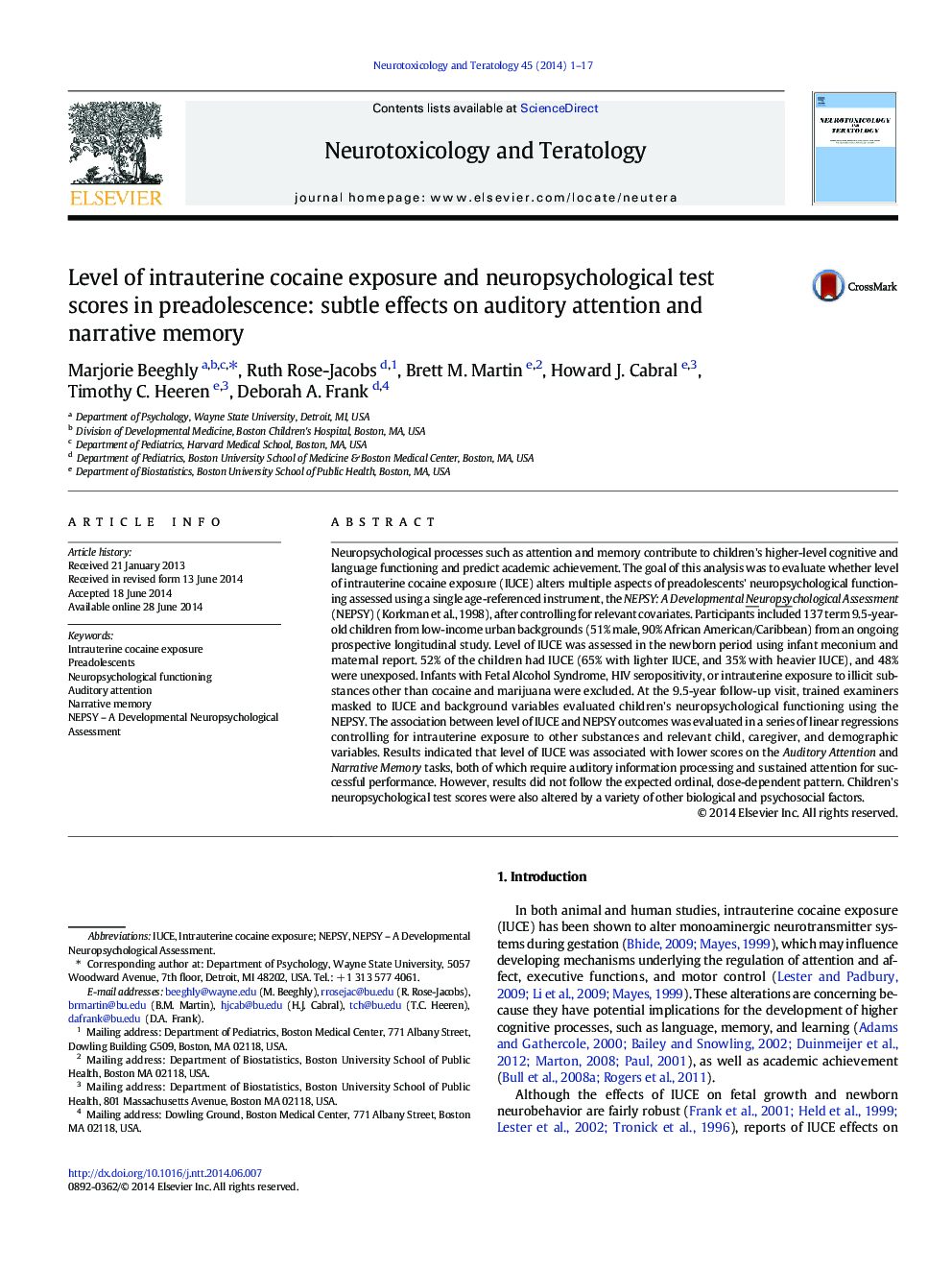| Article ID | Journal | Published Year | Pages | File Type |
|---|---|---|---|---|
| 2590921 | Neurotoxicology and Teratology | 2014 | 17 Pages |
•Neuropsychological skills contribute to higher-level cognitive processes.•Does prenatal cocaine exposure alter neuropsychological skills at preadolescence?•Multiple neuropsychological skills were assessed at 9.5 years using the NEPSY.•Prenatal cocaine exposure predicted poorer auditory attention and narrative memory.•Effects were small and did not follow the expected dose-dependent pattern.
Neuropsychological processes such as attention and memory contribute to children's higher-level cognitive and language functioning and predict academic achievement. The goal of this analysis was to evaluate whether level of intrauterine cocaine exposure (IUCE) alters multiple aspects of preadolescents' neuropsychological functioning assessed using a single age-referenced instrument, the NEPSY: A Developmental Neuropsychological Assessment (NEPSY) (Korkman et al., 1998), after controlling for relevant covariates. Participants included 137 term 9.5-year-old children from low-income urban backgrounds (51% male, 90% African American/Caribbean) from an ongoing prospective longitudinal study. Level of IUCE was assessed in the newborn period using infant meconium and maternal report. 52% of the children had IUCE (65% with lighter IUCE, and 35% with heavier IUCE), and 48% were unexposed. Infants with Fetal Alcohol Syndrome, HIV seropositivity, or intrauterine exposure to illicit substances other than cocaine and marijuana were excluded. At the 9.5-year follow-up visit, trained examiners masked to IUCE and background variables evaluated children's neuropsychological functioning using the NEPSY. The association between level of IUCE and NEPSY outcomes was evaluated in a series of linear regressions controlling for intrauterine exposure to other substances and relevant child, caregiver, and demographic variables. Results indicated that level of IUCE was associated with lower scores on the Auditory Attention and Narrative Memory tasks, both of which require auditory information processing and sustained attention for successful performance. However, results did not follow the expected ordinal, dose-dependent pattern. Children's neuropsychological test scores were also altered by a variety of other biological and psychosocial factors.
